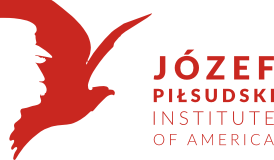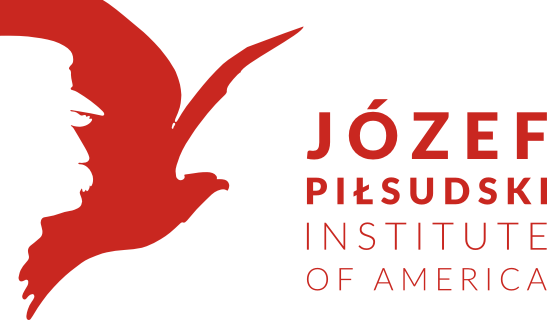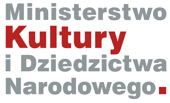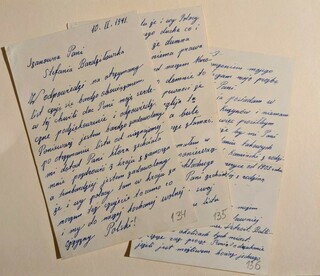 Letters wrote by polish soldiers to Stefania Bardzilowska during the World War II
Letters wrote by polish soldiers to Stefania Bardzilowska during the World War II
The art of letter writing is becoming forgotten, and although everyone likes to receive them, letters are quickly being replaced by other forms of communication. Instead of writing a letter, we prefer to send a text message or email to the other person, and we can count on an immediate response, even if they are on the other side of the world. In the past when there were no modern inventions, letters were very important. They were not only a means of conveying information, under special circumstances, such as travel, war or exile, they became particularly meaningful.
Indeed, letters lifted the spirits of soldiers fighting in the Polish Army in the West, full of bitterness, sadness, and longing, usually exchanged between completely strangers, were often the only form of communication with the outside world. Polish soldiers, prisoners of war, wrote letters asking for help, and in response, received food packages for a long time through International Red Cross.
Many letters preserved in our collection, were written by Stefania Bardziłowska to Polish soldiers in German's captivity, as well as to soldiers of the Polish Armed Forces fighting in the West, who could not maintain contact with their families. To keep morale up, a program of letters exchange with regular civilians from Polonia was introduced. Many such letters were addressed to Stefania Bardziłowska, a social activist living in Chicago, deeply involved in providing aid to polish soldiers in the West. Ms. Bardziłowska, organized shipments of food packages and sent supporting letters for the soldiers. Although, in accordance to the Geneva Convention, correspondence with prisoners of war was restricted only to close relatives and family members, Bardziłowska managed to obtain a number of addresses of Polish prisoners of war from the International Red Cross. For quite some time, German and American censorship kept the food packages program running.
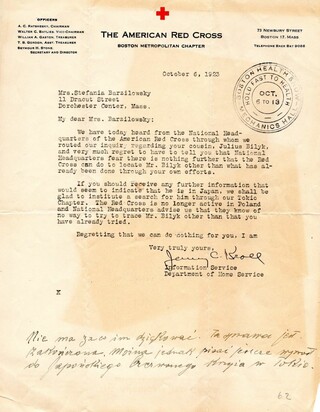 A letter from American section of the Red Cross in regards to the case of J. Bilyk
A letter from American section of the Red Cross in regards to the case of J. Bilyk
Letters written from different places in the Middle East and Western Europe were preserved and become part of the Pilsudski Institute Collection. Soldiers were grateful for receiving letters, as one of them wrote, "...I feel very obliged to give you my heartfelt thanks to you, I am very pleased to have received a letter from an unknown lady who has greeted me...."
The history of the recipient of the letters is was also interesting. Bardziłowska left Poland before the outbreak of World War I and married a Polish tailor in Boston, where she became involved in helping needy Polish immigrants. Supposedly, due to the fate of her cousin, Juliusz Biłyk, who went missing after World War I, she got a calling to help Polish soldiers scattered around the world during World War II. Our collection includes a letter from the American Red Cross from 1923 addressed to Mrs. Bardziłowska referring to the search for her missing cousin. The letter, signed by one of the officers of the Red Cross in the USA, closes the case of Mr.Biłyk. Filled with disappointment, Bardziłowska noted that the case was closed, and the last instance is a search by a Japanese section of the Red Cross.
During the World War II, Bardziłowska sent over a thousand letters, food packages, and funds to Polish soldiers in the West and the Middle East, as well as to needy civilians. The Institute has an extensive collection of these letters, and because they are written on paper, they have survived and serve as a testimony of the past. So perhaps it is worth writing a letter that will one day become an interesting memory of the time that has passed...
The project was supported by:



